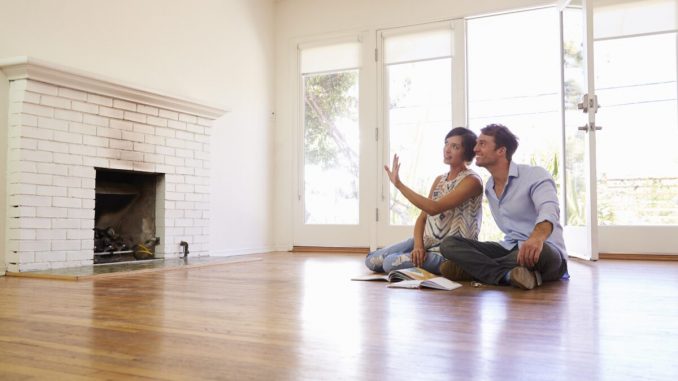

Here are 10 things we learned when identity theft forced us to reset our lifestyle
For years, my family and I struggled with overloaded schedules, overwhelming debt, and feeling enslaved to our four-bedroom, three-bath home with an excess of possessions. The things we thought we owned really “owned” us, and living in bondage to them rendered us ill, exhausted, and miserable.
To be honest, we didn’t even know what all we owned or how severely our lives were affected by these things until an unexpected identity theft crisis forced us to face reality.
Since then, we’ve sold our home, released about 90 percent of our physical possessions, eliminated 100 percent of our debt, and discovered a new and profound peace.
We are now a few years into this journey and have learned a few things. Here are 10 lessons our minimizing quest has taught me.
1. The hardest trials can produce the most desperately needed change. When we found out someone had stolen our identity, we felt blindsided and violated. This tribulation was alarming and long-lasting. But despite the suffering—or more accurately, because of it—we had the very catalyst we needed to propel ourselves from a life of material abundance to a truly abundant life.
2. Embracing reality is the first step toward changing your life. Coming face-to-face with identity theft forced us to examine each one of our debts, develop a stark picture of where we stood overall, and acknowledge the severity of how much we owed. Even though nothing had changed—and our debt still remained—knowing the specific reality of our situation gave us a sense of control and helped us find the fortitude to sell what we had to and pay what we owed. Fear of knowing where we stood kept us from asking hard questions and facing the facts regarding our financial situation. Once we owned up to what was real, the truth set us free and gave us the necessary courage to take the next step.
3. No one can change your life except you. Change is hard. Sometimes it seems easier to perpetuate what is familiar and feels safe, despite the misery it inflicts on our lives. As much as we would all love to have someone come in and do the heavy lifting—pun intended—of minimizing for us, we’re the only ones who can make those decisions and let go of what’s burdening our lives.
4. ‘The American dream’ doesn’t have to be your dream. Just because the world around us dictates its definition of “normal” doesn’t mean we have to conform to its demands. When pursuing the prescribed ideal of expected behavior requires us to go deep into debt, overburden our lives with excess, and keep our noses to the grindstone, that dream can become a nightmare. We no longer own a home but rent instead, and that’s OK. Being debt-free means far more to us than knowing we’re meeting someone else’s ideal.
5. Hoarding is not necessary. Both my husband and I come from parents who were born in the 1920s and early 1930s. They grew up in an entirely different time, when supplies and money were scarce. They were well-meaning in raising us with the mentality of “you better hold onto it in case you need it someday.” What we have learned is that there is no need to hold onto things we don’t need today. With each new day comes new provision, and our faith has taught us that we’ll always have what we need.
6. The freedom of owning less quickly eases the pain of letting go. As difficult as it is to release certain things, the sting only lasts a short time. The dread and separation anxiety ahead of time is the most vexing part, and we’ve found that once it’s out of sight, we don’t even miss it. The relief of being rid of emotionally and physically heavy baggage is liberating.
7. Peace is a trustworthy guide. The process of minimizing generates many conflicting emotions. Making the right decisions often requires careful consideration and soul-searching. Take your time to identify choices that calm your spirit and always follow the path to peace.
8. You only need to see the next step. When it became clear that we would need to sell our home to get out of debt, the only thing we knew for sure is that we needed to get in touch with a realtor and list our house on the market. What we were going to do next or where we were going to go afterward was a complete mystery.
But by the time the house sold a few months later, these questions were answered, and our next step had come into view. When we started out, I wanted a flashlight to illuminate the whole road ahead of us. What I found is that I can’t take step two before step one anyhow, and the only thing I need to see is the next step in front of me. When it’s time to know more, the guidance will be there. Leaps, when taken in faith, will land you where you need to be.
9. There is a huge difference between a want and a need. On our journey, it became necessary for us to live in tight quarters for a span of time after we sold our home and were waiting for our rental to become available. We learned quickly that we only needed a small handful of items to survive each day. Most of what we had surrounded ourselves with was entirely unnecessary to have a meaningful life.
10. Physical possessions are not the only things that need to be minimized. Unhealthy relationships, excessive obligations and commitments, a cluttered mind, and emotional toxins are equally detrimental to our lives, and they need to be pruned until balance and wellness are achieved.
You can read our story and find an in-depth dive into the lessons we have learned in our book, “Biblical Minimalism: Following Jesus from a Life of Abundance to a More Abundant Life.”
Though we’re all different and our paths are diverse, I believe the desire for peace is common to us all. Wherever you’re on your journey, I wish you well.
Cheryl Smith blogs at Biblical Minimalism.com, where she shares her family’s journey to relinquish excess and deepen their connection to Christ. Her book, “Biblical Minimalism,” is now available for purchase.





Be the first to comment